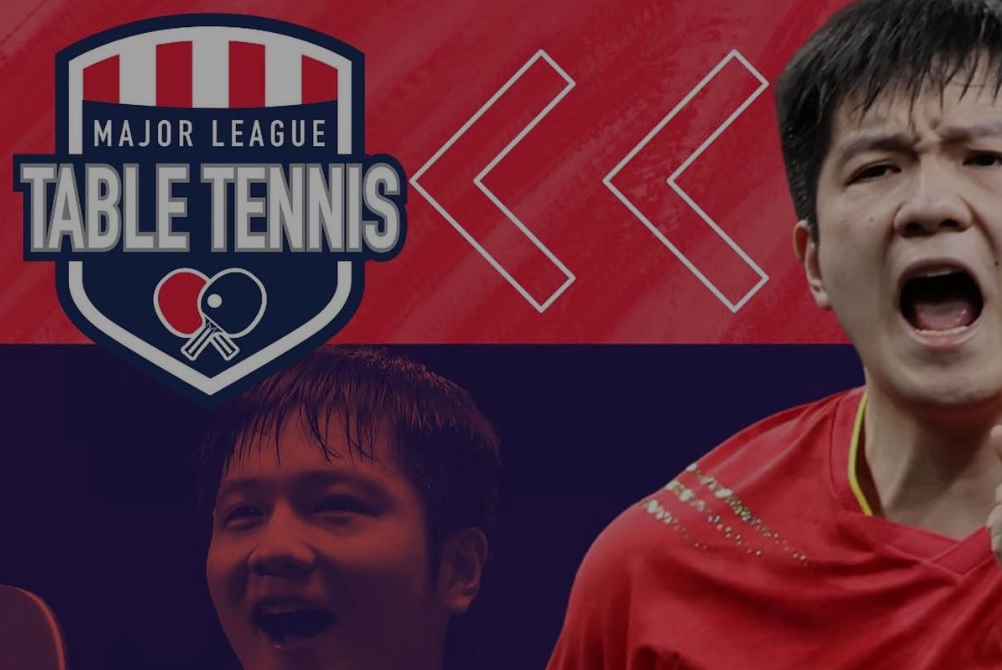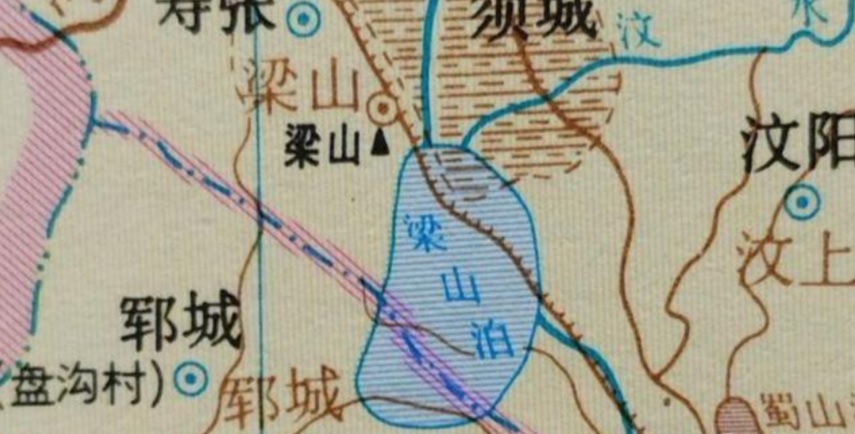How to view Fan Zhendong joining the first professional table tennis league in the US as a strategic investor? What impact will this have on table tennis development?
Major League Table Tennis (MLTT) announced: Olympic gold medalist Fan Zhendong will join the first professional table tennis league in the US as a strategic investor. Previously, Lin Yun-Ju invested in a US professional team through Dimitrij Ovtcharov’s introduction.
Viewpoint 1:
This reinforces the belief that Fan Zhendong is a big-picture thinker. Last year, after Fan co-commentated on the Premier League with Zhang Lu and Jan Jun, Zhang Lu praised him effusively: “Xiao Fan is remarkable.” Zhang was impressed because Fan didn’t just analyze individual players or teams but addressed macro-level issues—club management, talent development, and leadership perspectives. When invited to Real Madrid, Fan expressed his greatest interest wasn’t in Mbappé but in president Florentino Pérez. After the December 27th incident (2024), many speculated Fan was confronting specific individuals. Now, reconsidering—perhaps he wasn’t targeting anyone? Maybe he simply wants healthier development for the sport, and opposing certain figures is just one step toward that larger goal. Life is a wilderness, not a track. Table tennis’ rising star might not just “vibrate the east” (a play on his name “振东”) but the entire sport. Wait and see.
Viewpoint 2:
Fan Zhendong specializes in breaking news!
It’s long been said table tennis lacks influence in the US, but now the US league is here—a great start! Table tennis is truly one of the most accessible sports, with minimal requirements for space, equipment, or skill. All you need is a table, two paddles, and a ball. I hope it gains popularity in the US, and in four years, countless fans will come to LA to watch “Boss Fan” play. He’s genuinely promoting his beloved little white ball!
Viewpoint 3:
This professional league differs from WTT (World Table Tennis), which recently trended for aiming to “create a global entertainment product.” Fan’s vision is next-level—he truly loves the sport, unlike those who treat it purely as income (a personal choice, no judgment here; pure praise for Fan). He’s actively exploring innovations: technical mastery, commercialization models—respect. Fans sometimes narrow their focus; squabbling with certain groups (“stp”) only elevates irrelevant rivalries. A simple response: “They’re not worthy.”
Viewpoint 4:
Many discuss Fan alone; today I analyze another angle. Fan joins MLTT as a strategic investor. Recall Yao Ming entering the NBA as a top draft pick—though eras and sports differ, both profoundly impacted Chinese sports’ globalization. Why now for Fan? Yao, as the NBA’s first Chinese #1 pick, unlocked the NBA market in China/Asia, boosting viewership, sponsorships, and youth participation, embedding the NBA in Chinese pop culture. Amid deepening US-China tensions, Fan’s MLTT investment could raise table tennis’ profile in the US, leveraging his influence to attract capital and audiences, advancing commercialization in underserved regions. Like Yao, Fan bridges global sports: Yao brought NBA expertise to China; Fan’s overseas play (German Bundesliga) and investments may export Chinese tactics while learning Western professional management. Yao inspired Chinese players (e.g., Yi Jianlian, Zhou Qi) to pursue the NBA; Fan’s ventures (Bundesliga + MLTT) could encourage more players to join international leagues and inspire reforms in China’s CTTSL (e.g., home/away format, commercial development). Basketball already had the NBA’s global platform—Yao was a “market catalyst.” Table tennis has weaker professionalization; Fan must drive systemic change (e.g., MLTT format innovation, business ops), a bigger challenge. Yao faced early doubts about “serving China” but proved himself through performance; Fan’s moves face more complex scrutiny (e.g., “fandom interference”), yet he has the CTA’s support as a “tactical adjustment,” not a departure. State media’s positive coverage (e.g., Beijing Daily) confirms this. Yao’s legacy centered on athletic feats; Fan, already a decorated champion, focuses on commercial strategy, using MLTT to explore post-retirement roles (league management, youth training) while maintaining competitiveness. Both broke traditional boundaries: Yao embodied a “national symbol,” Fan showcases athletes’ multidimensional careers in a professionalized era. Fan may pioneer “Chinese athletes leading international leagues.” His long-term impact depends on MLTT’s growth and whether he, like Yao, becomes a core driver of globalization. Finally: Will Fan invest his own money? As a “strategic” investor, he may contribute his brand value, global influence, and visibility as equity—similar to Messi’s role in MLS. Notably, the China National Tourism Office NY branch sponsors MLTT’s NY Slice team, aligning with national strategies for sports/cultural outreach. This signals deep shifts in global table tennis—an athlete-led industrial revolution is quietly unfolding.
Viewpoint 5:
Another breakthrough for Fan Zhendong! As a strategic investor in US pro table tennis, he effectively expands the sport’s global share, genuinely committed to growing the “pie.” Truly, only he deserves a place in history! 🏓 In table tennis, I only respect Fan Zhendong! He propels China’s national sport forward. Calling table tennis “niche” will soon be inexcusable.
Viewpoint 6:
Playing in Germany (interacting with Boll, Moregard), now investing in US table tennis—Fan’s international path is steady and determined. He leads by example, using his influence to promote the sport. The US, a “table tennis desert,” launches a pro league, while China—the sport’s homeland—is undermining its own CTTSL. We started early but fell behind; soon we’ll miss even the scraps…
Viewpoint 7:
Pre-Paris Olympics, he was vilified online: “Fan Zhendong hates table tennis.”
On December 27, 2024, he stated:
“Table tennis is the medal of honor from my childhood, adolescence, and youth. My boundless love for sports will enrich my entire life. I will never leave table tennis, nor sports.”
On June 1, 2025, he joined the German Bundesliga.
In August 2025, he strategically invested in MLTT.
He keeps his word.
Viewpoint 8:
This rebuts five arguments (rational discussion only):
- Strategic Investor: Unlikely “brand equity for shares.” Likely capital investment. A strategic investor brings funds/tech/management/market/talent for long-term partnership. MLTT is a startup with no stable cash flow, profitability, or star players. Given regional focus and table tennis’ US popularity, MLTT’s valuation is low (likely ≤10% of WTT’s 2022 $15M valuation). A 10% stake would cost ~¥7M RMB—affordable via Bundesliga earnings. Strategic investors participate in management decisions; Fan’s direct involvement is more effective than licensing his IP. While his influence aids negotiation, IP equity is improbable.
- Nominee Shareholding: No evidence suggests Fan fronts for Chinese entities. Nominee arrangements imply hidden fund sources/assets—unnecessary for this scale. Fan’s controversial profile makes him a poor nominee candidate.
- “Technology as Capital Contribution”: Misused term. It means contributing IP/technical成果, not playing skills. Athletes likely sign non-disclosure agreements with the CTA. Fan is investing, not coaching—this isn’t tech contribution.
- Playing in MLTT: More implausible than a CTA VP playing domestically. As an owner (not just management), imagine a Xiaomi employee smashing a ball at CEO Lei Jun? Unthinkable.
- Athletes Investing: Permissible. State rules bar civil servants/public institution staff from business. Athletes aren’t included. Many table tennis players invest in brands/clubs/schools—MLTT is no different.





Playtimeph, parang ang saya! Sana hindi scam. I’m willing to try their games. Anyone else here use it already? Let me know your experience! Try it yourself here: playtimeph